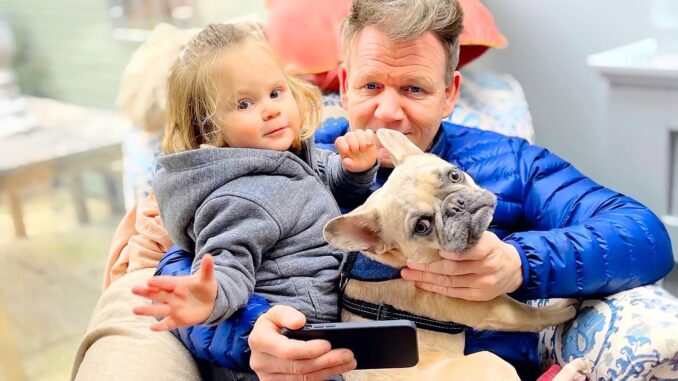
Gordon Ramsay doesn’t just cook. He roars, rants, slams plates, and serves drama hotter than any dish in his Michelin-starred restaurants. For over two decades, he has built a reputation as the world’s angriest chef — a man whose kitchen is a warzone and whose insults have become internet memes. But behind the shouting and theatrics lies a far more calculated truth: Gordon Ramsay doesn’t yell because he’s out of control. He yells because it works. In fact, his explosive personality is not just entertainment — it’s the foundation of a global media empire. The very thing that made him controversial is what made him iconic.
When Ramsay first appeared on TV in the late 1990s, the food world was dominated by polite, soft-spoken chefs teaching you how to sear salmon with a smile. Ramsay was the complete opposite. His first big break came with the documentary Boiling Point, which showed an intense, no-nonsense young chef building his restaurant and tearing through his staff with raw energy and no filter. Viewers were shocked — and hooked. This wasn’t food television. This was survival television. And Gordon Ramsay became the face of it.
By the time Hell’s Kitchen aired in 2005, the format was clear: fire, failure, and fury. Contestants crumbled under pressure, dishes were flung into the trash, and Ramsay ruled like a culinary drill sergeant. Critics called it excessive. Psychologists questioned the mental toll. But audiences couldn’t get enough. Ratings soared. And Ramsay leaned in. He understood what few chefs — or even television producers — truly grasped at the time: that television doesn’t reward perfection; it rewards emotion.
But what most people miss is this — Ramsay doesn’t shout just to be cruel. He shouts with precision. There’s a rhythm to it, almost like a script. The insults are creative, outrageous, and often hilarious. Calling scallops “Gandhi’s flip-flops” or beef wellingtons “deader than my gran” isn’t random rage — it’s theater. It’s designed to make you gasp, laugh, share, and remember. And in an age of memes and short attention spans, memorable is marketable.

Even more impressively, Ramsay knows when not to yell. Watch closely and you’ll notice how his tone changes with kids on MasterChef Junior — he becomes warm, patient, and deeply encouraging. With struggling business owners in Kitchen Nightmares, he often listens quietly before offering tough love. The fury is strategic. The compassion is real. And the balance between the two is what keeps fans loyal. He’s not a one-note tyrant. He’s a master of emotional range, calibrated for impact.
Over the years, this carefully crafted persona has turned into a brand worth hundreds of millions. Gordon Ramsay isn’t just a chef — he’s a global media property. His face is on television in over 100 countries. His YouTube videos rack up millions of views. His TikTok clips, often featuring signature outbursts, go viral weekly. He sells books, cookware, courses, and even frozen meals — all under the umbrella of that fiery but fascinating character we first met decades ago. And none of it would exist without the yelling.
But beyond business, there’s something human about Ramsay’s outbursts. He’s not polished. He’s not scripted. He gets angry when things go wrong — like many of us do. In a world of curated perfection and soft-spoken influencers, his honesty feels radical. That raw intensity, for better or worse, connects. And in that connection, there’s power.
Of course, Ramsay’s style has faced criticism — and rightfully so. Not every aspiring chef responds well to tough love. And in today’s climate, where mental health and workplace safety are taken more seriously than ever, the line between tough and toxic is under scrutiny. But Ramsay himself has evolved. He’s acknowledged past mistakes. He’s shown more vulnerability in recent years, especially when speaking about his family, his failures, and his past. That growth has allowed him to maintain relevance in a changing culture without losing the fire that made him famous.
So why does Gordon Ramsay yell? Because it’s who he is — and because it’s worked. Not just for the shock value, but because behind the volume is a message: standards matter. Passion matters. Food matters. And maybe, just maybe, caring deeply — even loudly — is better than not caring at all.
In the end, Gordon Ramsay’s voice — booming, bold, and unapologetically loud — didn’t just echo through kitchens. It echoed through culture. It created a blueprint for how chefs could become stars, how food could become entertainment, and how authenticity, even if abrasive, could cut through the noise. That voice, like it or not, built an empire.
